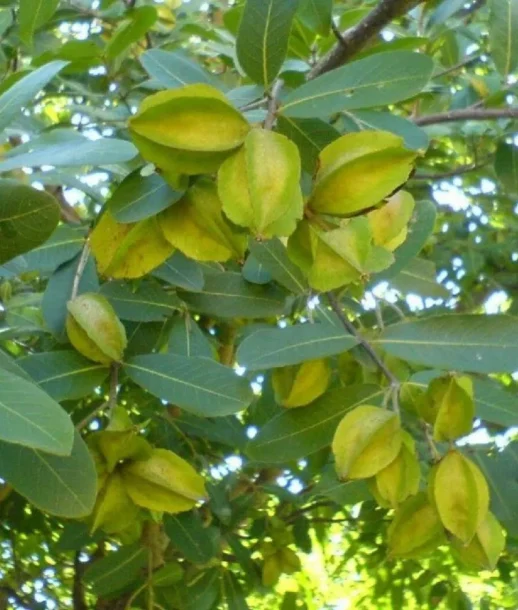Terminalia arjuna, commonly known as Arjuna, is an evergreen tree native to India. It belongs to the family Combretaceae and is a large tree attaining a height of 20-30 m. The bark of the Arjuna tree has been used in traditional Indian medi- cine, Ayurveda, for centuries to treat a variety of conditions, including heart dis- ease, high blood pressure, and diabetes.
Arjuna bark contains a number of active compounds, including flavonoids, tan- nins, and saponins. These compounds have been shown to have a number of beneficial effects on the cardiovascular system, including:
- Reducing inflammation
- Improving blood vessel function
- Reducing cholesterol levels
- Reducing blood pressure
- Strengthening the heart muscle
- Arjuna has also been shown to have antioxidant and anti-inflammatory effects, which may help to protect against other diseases, such as cancer and Alzheimer’s disease.
Arjuna is generally considered to be safe for most people to consume. However, it is important to talk to your doctor before taking Arjuna if you have any under- lying health conditions or are taking any medications.
Here are some of the potential health benefits of Arjuna:
- Cardiovascular health: Arjuna has been shown to improve heart function, reduce blood pressure, and lower cholesterol levels. This makes it a potential treatment for a variety of cardiovascular conditions, including heart failure, coronary artery disease, and arrhythmias.
- Diabetes: Arjuna may help to improve blood sugar control in people with dia- betes. This is thought to be due to its ability to improve insulin sensitivity and reduce inflammation.
- Antioxidant and anti-inflammatory effects: Arjuna has strong antioxidant and anti-inflammatory effects. This may help to protect against a variety of diseases, including cancer, Alzheimer’s disease, and rheumatoid arthritis.
- Other potential benefits: Arjuna has also been shown to have some other potential health benefits, such as improving liver function, reducing anxiety, and promoting wound healing.
Botanical description –
- Plant: Deciduous tree, 20-30 m tall, with a buttressed trunk and a wide spreading crown.
- Bark: Grayish-brown, smooth, exfoliating in thin irregular sheets.
- Leaves: Simple, opposite, oblong-lanceolate, 10-15 cm long, 4-7 cm wide, green above, pale brown below.
- Flowers: Small, white, borne in spikes or panicles.
- Fruit: Drupe, 2.5-5 cm long, dark brown to reddish-brown, fibrous woody, with five hard, projecting wings.
Arjuna is found in a variety of habitats in India, including forests, woodlands, and scrublands. It is also cultivated in other parts of the world, such as Southeast Asia, Africa, and South America.
The bark of the Arjuna tree is used in traditional Indian medicine, Ayurveda, to treat a variety of conditions, including heart disease, high blood pressure, and diabetes. The bark contains a number of active compounds, including Flavonoids, tannins, and saponins. These compounds have been shown to have a number of beneficial effects on the cardiovascular system.
Chemical constituents:
- Flavonoids: Arjuna bark is particularly rich in flavonoids, which are plant compounds with antioxidant and anti-inflammatory properties. Some of the flavonoids found in Arjuna bark include arjunolone, luteolin, quercetin, and kaempferol.
- Tannins: Tannins are another type of plant compound that has antioxidant and anti-inflammatory properties. Arjuna bark contains a variety of tan- nins, including gallic acid, ellagic acid, and catechins.
- Saponins: Saponins are plant compounds that have foaming and deter- gent properties. They are also known for their antioxidant and anti-in- flammatory properties. Some of the saponins found in Arjuna bark include quillaia saponins and astragalin saponins.
- Triterpenoids: Triterpenoids are a type of plant compound that is known for its anti-inflammatory and antioxidant properties. Some of the triter- penoids found in Arjuna bark include betulinic acid, oleanolic acid, and ursolic acid.
- Other constituents: Arjuna bark also contains other constituents, such as amino acids, minerals, and vitamins.

